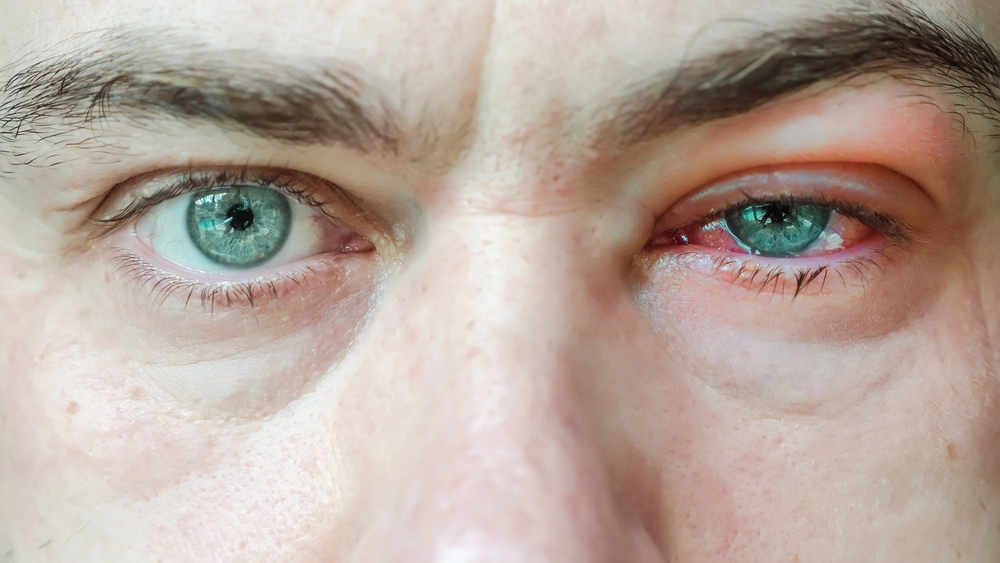Waking up with red, irritated eyes can be unsettling, especially when you’re unsure if it’s something that could spread to your loved ones. Eye infections are common and can stem from bacteria, viruses, fungi, or allergies. While some infections are harmless, others may be highly contagious. Knowing whether your eye infection is contagious is crucial for proper treatment and preventing its spread. We spoke to Dr Sukanya Meikandasivam, Consultant Ophthalmology, Gleneagles BGS Hospital Kengeri, Bengaluru, who explained common types of eye infections and how to determine if yours is contagious.
Common Types of Eye Infections
Conjunctivitis (Pink Eye)
One of the most prevalent and contagious eye infections, conjunctivitis involves inflammation of the conjunctiva—the thin membrane covering the white part of the eye. While allergic conjunctivitis is non-contagious, viral and bacterial conjunctivitis can spread easily.
Epidemic Keratoconjunctivitis (EKC)

“EKC is a highly contagious viral infection caused by adenovirus. This conjunctivitis often spreads in outbreaks, particularly in schools or workplaces. Symptoms include red eyes, watery discharge, and sensitivity to light. EKC can take weeks to resolve,” said Dr Meikandasivam.
Bacterial Conjunctivitis
Bacterial conjunctivitis is commonly caused by bacteria like Staphylococcus and Streptococcus. It spreads through contact with contaminated surfaces or shared personal items. A 2020 study found that bacterial infections were responsible for 50–70% of conjunctivitis cases.
Keratitis
Keratitis is the inflammation or infection of the cornea and can be caused by bacteria, viruses, fungi, or parasites. Some forms, like Herpes Simplex Virus (HSV) keratitis, are contagious and can spread through contact with an infected person.
Trachoma
“Trachoma is a long-term eye infection caused by the bacterium Chlamydia trachomatis. It is highly contagious and can lead to blindness if left untreated. It spreads through direct contact with infected individuals or contaminated objects like towels or clothing,” said Dr Meikandasivam.
Blepharitis

Blepharitis refers to the inflammation of the eyelids and is typically caused by bacteria or skin conditions like dandruff. Although blepharitis is not usually contagious, maintaining proper hygiene is key to preventing bacterial spread.
Also Read: Dancing Eye Syndrome: Expert Explains Causes, Symptoms, And Treatment For This Condition
Signs Your Eye Infection May Be Contagious
Here are some signs listed by Dr Meikandasivam indicating that your eye infection may be contagious:

- Presence of Discharge: Thick, yellow, or green discharge usually indicates a bacterial infection, which can be highly contagious. Watery discharge is often linked to viral infections, such as viral conjunctivitis, and can also be contagious.
- Redness and Swelling: Eye redness and swelling are common in both contagious and non-contagious infections. However, if these symptoms are accompanied by itching, burning, or excessive tearing, it may signal a contagious viral or bacterial cause.
- Involvement of Both Eyes: Contagious infections often begin in one eye and quickly spread to the other. Viral and bacterial conjunctivitis typically affects both eyes, increasing the likelihood of transmission.
- Associated Respiratory Symptoms: If your eye infection is accompanied by cold-like symptoms, such as a runny nose, sore throat, or cough, it could be viral conjunctivitis. The disease spreads via respiratory droplets and is highly contagious.
How to Prevent the Spread

- Wash Hands Regularly: Proper hand hygiene is essential for preventing the spread of contagious eye infections.
- Avoid Touching Your Eyes: Refrain from rubbing or touching your eyes to minimise the risk of introducing or spreading infections.
- Avoid Sharing Personal Items: Towels, pillowcases, makeup, and eye drops should not be shared as they can carry infectious agents.
- Use Clean Towels and Pillowcases: Change these items frequently to reduce the risk of spreading infection.
Non-Contagious Infections
“Not all eye infections are contagious. For instance, allergic conjunctivitis caused by allergens like pollen or dust, and irritant conjunctivitis from chemicals, are non-contagious. Such infections do not spread to others,” added Dr Meikandasivam.
If you’re uncertain whether your eye infection is contagious, it’s wise to consult an ophthalmologist for an accurate diagnosis and treatment plan. Seek immediate care if you experience severe pain or vision changes, or if your symptoms persist for more than a few days.
Bottomline
Dr Meikandasivam concluded, “Understanding whether your eye infection is contagious depends on the underlying cause. If you suspect a viral or bacterial infection, take precautions to prevent its spread, and consult an ophthalmologist for accurate diagnosis and treatment.”
[Disclaimer: This article contains information provided by an expert and is for informational purposes only. Hence, we advise you to consult your own professional if you are dealing with any health issues to avoid complications.]
